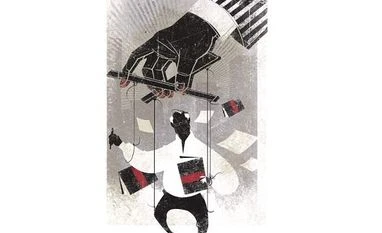“Lobbying’’ is a common allegation in many FIRs and charge sheets filed by the CBI and other law enforcement agencies, though policymakers do not call this activity “illegal’’. Several recent cases have centred on lobbying by corporates, implying that government policies have been influenced or attempts have been made to change policies. Bribing government officials has often been linked to lobbying.
Explaining the thin line between what is legal and what is illegal, a government official noted that many ministries, such as Defence, have a clear understanding of what is permitted. While bureaucrats can hold meetings with top company executives, middlemen and outside representatives are actively discouraged. Even informal meetings with such persons at social gatherings are seen as unethical, he pointed out.
In fact, there’s a reference list made by the CBI, which it revises periodically, to tell government officials and public authorities as to who are persona non grata. This is a “secret list’. However, many names have tumbled out of the list, triggering controversy. In 2012, the CBI came out with a list of 23 names as ‘undesirable contact men’ or UCM, according to reports. These persons were learnt to be operating in ministries such as Defence, Home, Finance, Coal, Power, Telecom and Shipping. These UCMs include chartered accountants, consultants, arms dealers and lobbyists. There has been a demand to make it a public document, but the list remains “confidential’’.
When questions on “undesirable contact men’’ were asked in Parliament, the government declined to reveal the list. Minister of State for Personnel, Public Grievances and Pensions Jitendra Singh, however, had told the Lok Sabha in December 2015 that the Centre is committed to implementing its policy of zero tolerance against corruption.
K M Chandrasekhar, former cabinet secretary, noted middlemen were people to whom a supplier gives a commission for swinging a deal. “This is illegal and for defence equipment, the seller has to give an undertaking that no middleman has been used,’’ he says. But, he interpreted lobbying differently.
To read the full story, Subscribe Now at just Rs 249 a month
Already a subscriber? Log in
Subscribe To BS Premium
₹249
Renews automatically
₹1699₹1999
Opt for auto renewal and save Rs. 300 Renews automatically
₹1999
What you get on BS Premium?
-
Unlock 30+ premium stories daily hand-picked by our editors, across devices on browser and app.
-
Pick your 5 favourite companies, get a daily email with all news updates on them.
Full access to our intuitive epaper - clip, save, share articles from any device; newspaper archives from 2006.
Preferential invites to Business Standard events.
Curated newsletters on markets, personal finance, policy & politics, start-ups, technology, and more.
Need More Information - write to us at assist@bsmail.in
)